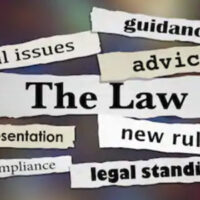Obstruction of Justice

If you have been charged with obstructing justice, you are facing some serious charges. In addition to the penalties associated with any underlying charges, significant consequences may be in store for charges of obstruction. An experienced criminal attorney can guide you through your defense of these charges.
What Constitutes Obstruction
Any act that corruptly influences, or attempts to impede justice, might be considered obstruction. Under Florida statute, a number of actions could be considered obstruction of justice, including:
- Resisting an officer of the law, with or without violence;
- Impersonating a police officer;
- Disobeying a lawful order given by a law enforcement officer;
- Possession of a handcuff key unlawfully;
- Interfering with an officer’s communication or protection;
- Disguising oneself in order to obstruct;
- Conducting perjury;
- Escaping, or aiding in the escape of another person, from an officer;
- Failure to appear on bond;
- Failing to assist officers in an investigation;
- Being an accessory after the fact;
- Publishing the personal information of a law enforcement officer;
- Harassing a neighborhood watch participant or witness involved in an investigation;
- Tampering with a witness or with evidence.
Proving Obstruction Occurred
While making a claim of obstruction may be a simple process, actually proving such a charge is much more difficult. Federal code states that it is a crime to corruptly influence or impede justice, (any judicial proceedings, Congressional investigation, or proceedings before a federal administrative agency). In order to secure a conviction on obstruction charges, a prosecutor must demonstrate that an individual did the following:
- Intended to obstruct justice;
- Knew that there was a pending proceeding;
- Knew that the actions taken might have an impact on the proceedings.
To be sure, whether or not a separate crime was committed is beside the point. Obstruction charges relate to an individual’s efforts to interfere with the effective administration of justice. Proving corrupt intent can be a significant challenge, as it is subject to interpretation in many cases. Former Attorney General Janet Reno notes that the open-ended nature of the concept was intentional, due to the inability of language to capture all the nuances of the human experience.
Penalties for Obstruction of Justice
The nature of the activity impacts the severity of the penalty in obstruction cases. Some circumstances warrant only misdemeanor charges, while in other situations felony charges are filed. That means the penalties, too, vary, ranging from five years of imprisonment to a life sentence, in addition to potential fines.
If you are Charged with Obstruction
The first thing you should do after being charged with obstruction of justice is to secure the aid of a tough Kissimmee criminal lawyer. You are facing serious charges, and you need a serious defense. At the Salazar & Kelly Law Group, P.A., we will fight for you. Contact our office today to schedule a confidential consultation.
https://www.salazarandkelly.com/problems-with-evidence-and-the-chain-of-custody/

